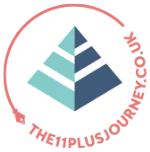
Guest blog post by Jonathan Ellis of Atom Learning
For a 10% discount code for Atom Learning subscription, use code discount code 11PLUSJOURNEY.
For a list of online subscription sites for 11 plus, please click on this.
The verbal reasoning section can definitely cause its fair share of test anxiety. It is designed to test a child’s critical thinking and logic skills, but is not a topic commonly covered in primary school classrooms. As such, it may be the first time your child comes across these styles of questions.
However, verbal reasoning builds on a lot of the skills covered in the Key Stage 2 English and Maths curriculum. So, some of the building blocks will be there. With a little bit of preparation, a dash of enthusiasm and plenty of practice, your child’s confidence in these questions will grow.
So, what’s on the verbal reasoning section? I’ve summarised the key sections below.

Words and Wordplay
What’s on it? These are the questions that will be most familiar to your children. They will test things like synonyms, antonyms, homonyms, anagrams and word puzzles.
Example question: this video goes over ‘synonyms’ and the type of verbal reasoning synonym questions your child can expect!
How should I prepare my child?
Honestly, boosting your child’s vocabulary through plenty of reading outside of school is the best preparation here. I get any students I work with to keep a vocabulary journal of new words they come across. Make sure they review it 2-3 times a week. You can make it fun using online tools like Quizlet / Kahoot. Making sure your child is familiar with prefixes and suffixes is also important to help them define unknown words in the test.
Patterns and Functions
What’s on it?
Okay, these questions can be a bit wild. A lot of these questions are to do with cracking codes in sequences.
Example question
Which two letter pairs will complete this sequence?
__ ZF WJ SN NR __
The answer: BB, HV
How should I prepare my child?
There are four key sequences your child needs to know for these questions - make sure they know them off by heart! You can find a summary of them in this presentation from one of our free live lessons.
These questions will be quite different from anything they’ve seen in school, so if your child struggles with them it may be worth subscribing to Atom to access our unlimited practice questions.
Logic
What’s on it?
These questions require your child to deduce conclusions from a set of statements.
Example Question
Statement one: Some slime is pink.
Statement two: All slime contains sodium borate.
Which conclusion can we draw from the above statements?
Wrong - statement one says only ‘some’ slime is pink.
Wrong - statement two says ‘all’ slime contains sodium borate.
Wrong - neither statement mentions purple slime. Your child can only use the statements to work out the answer, even if they know slime can be purple!
Wrong - again, none of the statements mention blue slime.
Correct - bingo! Statement one says ‘some’ slime is pink; this means slime can indeed come in pink. This is the only conclusion we can prove using the two statements.

How should I prepare my child?
These questions can even make my brain hurt, but the best thing to teach your child is to read critically. I know this sounds a bit nebulous - but teach them to look out for words like ‘always’ and ‘never’. These are absolute terms: does the statement really always apply? Can we prove that using the statements we are given?
Numbers
What’s on it?
In these questions, letters are used to replace numbers. Your child will need to work out which numbers represent the different letters and then calculate the answer.
Example Question
v = 13, w = 7, r = 8, y = 15, and z = 6. Which letter balances the below equation?
(y - r) x z= z2 + ?
Solution:
(15 - 8) x 6 = 62 + ?
7 x 6 = 36 + ?
42 = 36 + ?
6 = ? = z
How should I prepare my child?
Your child should be pretty well prepared for these question types, as they build on a lot of key topics from the Key Stage 2 national curriculum (BIDMAS, operations, etc). If your child is applying to a particularly selective school, I would advise making sure they are comfortable with algebra as these can be key differentiator questions.
Next Steps:
I’m an online teacher with Atom learning and have 5+ years experience in education. Want to get in touch? Feel free to reach out to me via email or on LinkedIn!
